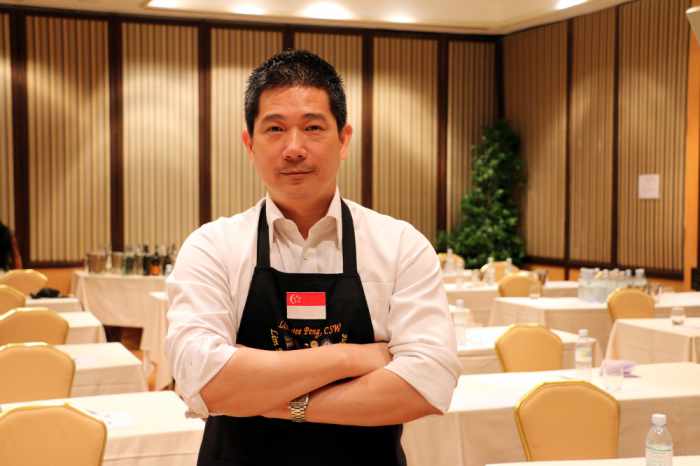Singaporean wine expert leads two day California wine training seminar

PHUKET: Times when a waiter in a restaurant could get away with just about any wine recommendation – a white for the fish or a random red to go with meat – are luckily over. These days, customers are more and more knowledgeable and demand an ever-growing level of service. Better trained staff can be the key to success, especially in Phuket’s highly competitive environment.
The fact that local food and beverage and hospitality establishments are aware of the connection between better staff training and increased competitiveness could be clearly seen during the recent Intensive California Wine Training Program organized by World Class Wines Co, Ltd and California Wines Co, Ltd in cooperation with WineCraft held at Patong’s Holiday Inn.
The hotel’s conference hall was packed with representatives of such renowned establishments as Trisara, JW Marriott, Outrigger, Avista and others, who attended the two-day training with hopes of expanding their knowledge and gaining appropriate certification.
The course, conducted by international wine specialist, Singapore national Lim Hwee Peng, a Certified Specialist in Wines (CSW), focused on the wines of Napa Valley, California, one of the world’s smallest but most diverse wine growing regions, which in its relatively short, 150-year history, has produced some of the world’s greatest wines. Everything, starting with the region’s wine industry origins, its most influential characters, soil, weather profiles and much more, was covered during the training, accompanied by a number of premium Napa wines to create a perfect match of knowledge
and fun.

“The world of wine is a constantly evolving universe – a never-ending learning journey,” explained Lim Hwee Peng. “It’s a constant process, not of trying to catch up, but of staying ahead of the game. This is why it’s important for wine professionals to get as much certification as possible,” he added.
According to Lim, such training builds confidence and competency, which helps wine and food professionals in their day-to-day jobs, enabling them to answer any question a well-traveled and knowledgeable guest might want to ask.
“It’s not enough to say whether a wine is fruity or not. People know more and more and that’s why courses like this have a future here,” he explained.
And being in Thailand and Southeast Asia in general, this might be more true than anywhere else. On one hand, wine is not a part of the region’s native culture, so more time and effort is needed to propagate it. On the other, the demand is ever growing as is the understating of the wine culture in these parts of the world. Lim, who has had a chance to observe this growth through his years of providing wine knowledge to local hospitality and food professionals, confirms.
“The service I’m providing here is for a niche market, but I do notice growth. Just a few years ago, during such training, I needed a translator to help the audience understand what I was explaining. Not anymore. Now I can crack jokes and everybody understands. I think this shows how it’s all developing.
And it’s very encouraging to see this improvement.”Any conversation about wine culture in Thailand cannot be complete without the mention of outrageous taxes and import duties resulting in excessively high prices of wine in local outlets. But according to Lim, it’s nothing that should deter anybody from the wine business here.
“Many people complain about high duties and tax problems, but if you speak to the locals and let them know that you intend to do business with them, they will tell you that these are just small issues to overcome and it shouldn’t prevent people from doing business here.”
— Maciek Klimowicz
Latest Thailand News
Follow The Thaiger on Google News:


























